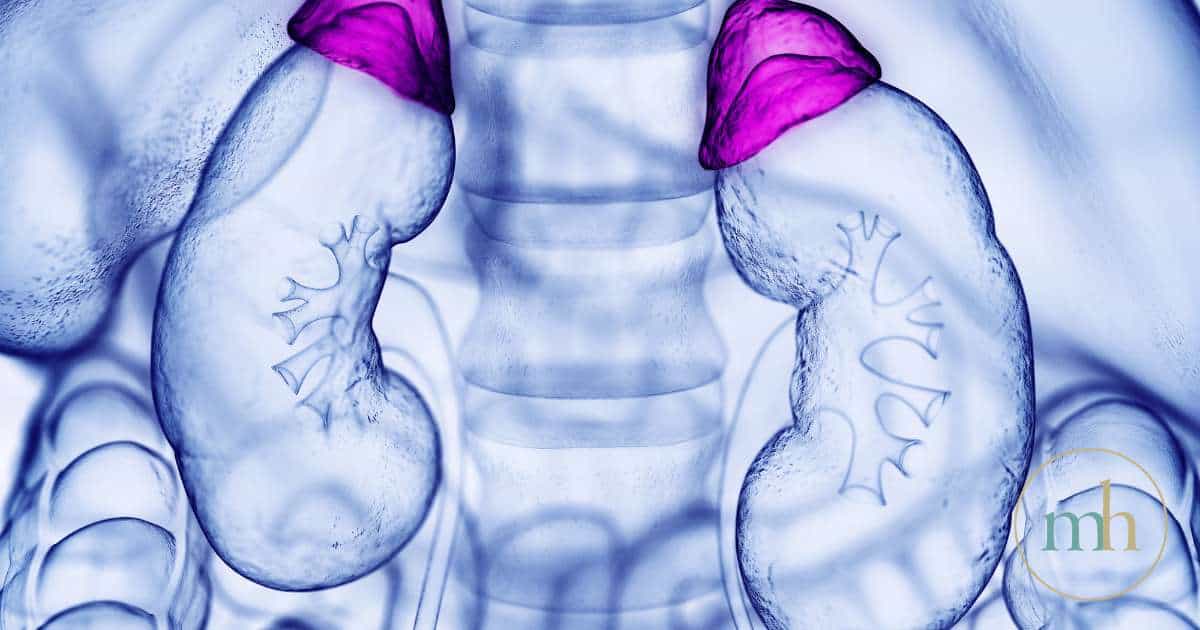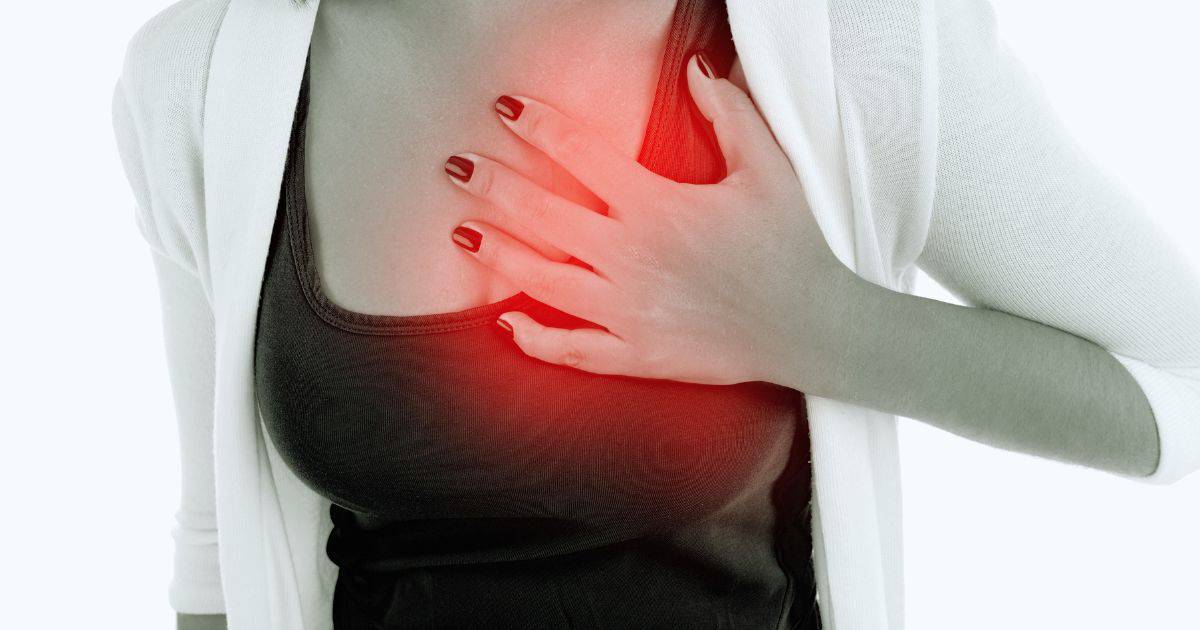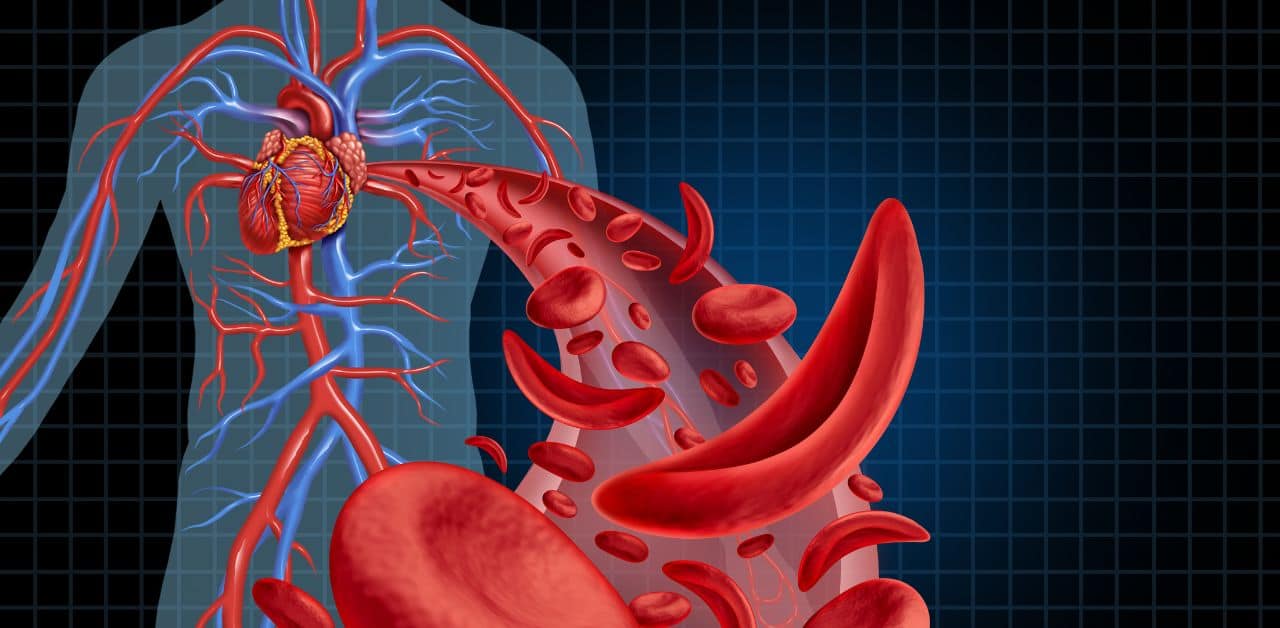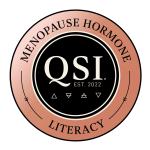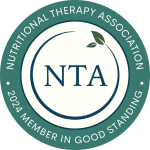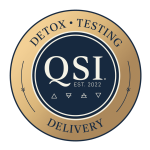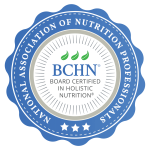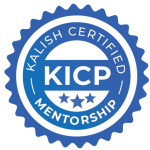Did you know that most of us are suffering from mineral deficiencies due to minerally depleted soils and increased CO2 levels? Even organically grown crops and pasture-raised animals are mineral deficient. So you cannot eat your way to mineral health!
Magnesium, calcium, zinc, iodine and iron are the 5 most common mineral deficiencies you may experience. Since you can’t get enough of these from your food, I will share how to make sure you’re supplementing enough minerals and how to do this.
What are mineral deficiencies?
Minerals are what remains as ash when plant or animal tissues are burned. They come from the earth and will eventually return to the earth.
Minerals make up only 4% of your body, but you can’t live without them. It might surprise you that your physical health is more dependent on the minerals than on calories, vitamins or macronutrients. Your body can’t make them and of the 103 known minerals today, 18 are necessary.
Minerals are a part of so many key functions in your body. They:
- Act as cofactors for enzyme reactions
- Relax and contract muscles
- Manage tissue growth
- Maintain proper nerve conduction
- Provide structural and functional support
- Help transfer nutrients across cell walls
Additionally, calcium and magnesium are 2 of your body’s 7 electrolytes. Electrolytes are substances that conduct electricity when dissolved in water. Their most important job is to regulate nerve and muscle function. They send signals from your heart and muscles to other cells and they keep your heart beating.

Mineral deficiencies
If most Americans are taking multivitamins, why do so many people have mineral deficiencies? There are many reasons.
- If you’re eating a diet that includes processed food, you are eating mineral-deficient food. This causes weight gain. Your body craves minerals, so it keeps telling you to eat, hoping it will get what it needs. This imbalance is also what causes you to crave sugar and fat.
- As I already mentioned, our soils are depleted. Even if you’re eating a healthy diet, modern food, including organic, has fewer nutrients than even 70 years ago. Agricultural industrialization has created monocultures of crops and removed foraging animals from the farm. This combo depleted the soil and now has very little to give to the plants grown in it.
- There are certain times in your life when you need more minerals – as a baby and child and once again during pregnancy and lactation.
- Sometimes your body can’t absorb or utilize minerals correctly. This can be for a variety of reasons, including poor digestion. You may have parasites (yes, this is very common) that are using your minerals before you.
- What you’re eating or drinking can keep you from absorbing minerals. For example, pH (acid-alkaline balance) affects minerals, so phosphoric acid in carbonated beverages knocks out your zinc. Zinc is needed to make hydrochloric acid (HCl) that your stomach needs to digest your food. Caffeine disrupts calcium, iron, magnesium and B vitamin absorption. UGH!
Minerals – synergistic or antagonistic?
Minerals can be synergistic or antagonistic. This means they can either work together or against each other. Zinc and copper are antagonistic. This is one reason I only recommend single supplementation in exceptional clinical circumstances. Your body needs everything in balance as we have been discussing through this series of articles.1
Mineral deficiencies aren’t good for your health, but neither are mineral overdoses. This is important when you think about what supplements you’re taking and what foods you’re eating.
Synergistic mineral pairs are:
- Iron and copper: work together to build red blood cells. You have to have enough copper in your body for iron to do its job.
- Magnesium and potassium: help maintain the right amount of fluid in your cells and blood plasma. Having enough magnesium means your cells can hold onto potassium better.
- Calcium, magnesium and phosphorus: all are needed in the right amounts for you to have healthy bones.
- Iodine and selenium: work together for thyroid hormone creation and function.
On the flip side, some minerals are antagonistic to each other:
- Zinc and copper
- Sodium and potassium
- Calcium and magnesium
Antagonists keep intestinal absorption from happening or interfere with the metabolic functions of one another.
That’s why eating a diverse nutrient-dense diet throughout the day is important. Even if you can’t end mineral deficiencies just through your diet, it’s the place to start.
Mineral deficiencies : Calcium
Remember the “Got Milk?” ads? Getting your daily calcium was a huge part of the campaign for selling more milk. Lack of calcium has long been touted as one of the key mineral deficiencies and, thankfully, milk was here to save you!
But did you know that it’s actually not hard to get enough calcium into your diet even if you aren’t drinking milk? Nuts, dark leafy greens (kale, bok choy, and mustard, turnip and collard greens), seeds, canned sardines, salmon, beans and lentils are high in calcium.
What is difficult is winning the calcium game of cofactors.
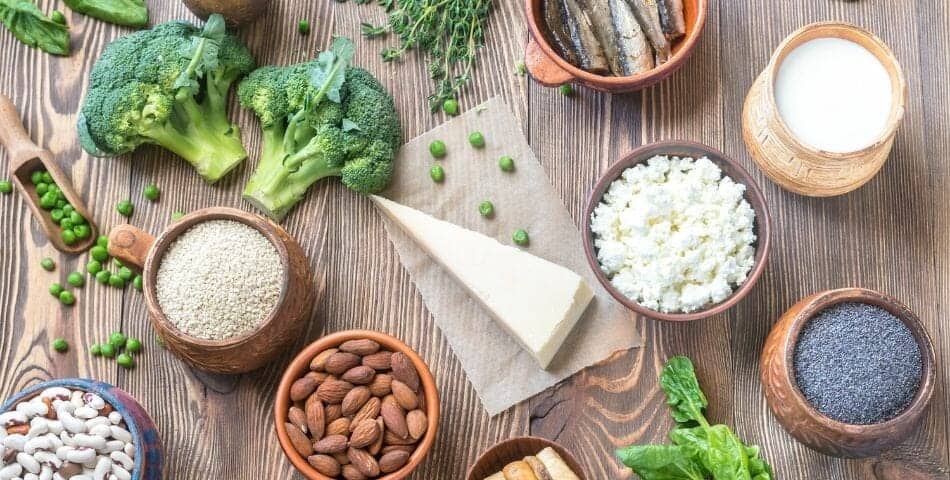
It’s how much calcium you absorb into your bones, not how much you eat.
Clare Kelway
Calcium supplements are invariably recommended to women, especially after menopause. This can be the worst recommendation for your health. You don’t need more calcium, you need the cofactors to utilize the calcium you already have. You don’t want your body calcified in places it’s not meant to be! Osteoporosis is not a lack of calcium. It’s a lack of mineral absorption that is causing bone density thinning.
Bone health
Your bones are living tissue and have their own metabolism! Minerals and blood are constantly moving in and out. Most of your body’s minerals are in your skeletal system so mineral deficiencies really show themselves in your bones. 99% of your calcium is in your bones, along with 35% of sodium, 60% of magnesium and 85% of phosphate.
The rest is water and protein, which forms collagen. The combo of minerals and collagen make your bones both strong and flexible. Collagen decreases as you age, especially after menopause. Studies show that women’s skin loses 30% of collagen during the first 5 years of menopause2.
Vitamins (especially D), hormones and exercise also play a part in bone health. Bones are removed (by being reabsorbed) and new ones built. This is called remodeling. Up to 15% of your bones are regrown each year! This is also how you heal broken bones.

Bone loss during pregnancy is an issue for many women. This is because your body will do anything necessary to get calcium to the growing fetus. That means pulling calcium from your bones and teeth if you aren’t getting enough through food and supplements.
And bone loss post-menopause becomes a challenge because your estrogen levels have dropped. Estrogen is a reason your bones are healthier when you’re younger. Post-menopause, low estrogen means more bone is reabsorbed into your bloodstream than formed into new bone.
How can you keep bone loss under control?
- Focus on weight-bearing exercise
- Get the right mineral balance of calcium and Vitamin D
- Eat a nutrient-dense, whole foods diet
- Avoid caffeine. It pulls calcium from bones!
- Go easy on salt. Excess salt pulls calcium from your bones.
All of these recommendations are good no matter your age. Following them will put you in a better place once you reach menopause.
Role of calcium
Calcium is the most abundant mineral element in your body.
Some of the key functions of calcium are:
- Mineralizing your bones and teeth, especially during times of rapid growth.
- Supporting muscle contractions during muscular activity and regulating your heartbeat.
- Stabilizes the structure of nerve and cell membranes and the release of neurotransmitters.
- Supporting cell division and blood coagulation.
Calcium cofactors
There are 6 main cofactors that affect calcium absorption:
- Hormone function. The parathyroid glands regulate calcium levels in your blood. Parathyroid hormone (PTH) raises your blood calcium levels. Calcitonin, a hormone produced by the thyroid gland, lowers your blood calcium levels.
- Hydration (water and electrolytes). If you are dehydrated, this will negatively affect calcium absorption. Many people are permanently dehydrated. Electrolytes need to be balanced so calcium can be moved in and out of cells.
- Other minerals, especially potassium. Trace elements, including copper, boron, manganese and zinc, are also needed for you to absorb calcium.
- Fatty acids. They are responsible for transporting calcium across your cell membranes.
- Vitamins. Vitamin D ensures your blood calcium levels stay stable, even at the expense of breaking down bone tissue if your calcium intake is low. It is also needed to increase calcium absorption in your GI tract. Your small and large intestine is full of vitamin D receptors. You can see why a deficiency in vitamin D is such a big issue for your health.
- Digestion. Calcium is only absorbed in a highly acidic environment and needs HCI (hydrochloric acid) for uptake.

Food and lifestyle factors can also play a role in calcium deficiency:
- Stress!
- Infections
- Immune activity, especially fevers
- Sun exposure
- Phytic acid in foods
- Oxalic acid foods (spinach, rhubarb, cocoa, beet greens, chard)
Put your focus on optimizing the calcium cofactors through lifestyle and diet shifts rather than on a calcium supplement.
Mineral deficiencies: Iodine
Iodine plays many roles in your body. It supports:
- Production of thyroid hormones (it’s required for normal thyroid function because thyroxine is 65% iodine).
- Cell respiration and the production of energy via ATP (adenotriphosphate).
- Normal growth and development.
- Nerve and bone formation, and the condition of your skin, hair, nails and teeth.
Iodine may also be important for deactivating unwanted bacteria.
It’s been almost 100 years since iodized salt was created. Since then, the incidence of goiter has dropped and IQs have risen.
Thyroid health
Thyroid health should be on your mind because of how common it is. There are many types of thyroid dysfunction and it’s estimated that 20 million Americans (mostly women) have it. 1 in 8 women will develop thyroid disease. And of those 20 million, almost 60% have no idea they have it3!
Mineral balance of iodine is critical for your thyroid. Your thyroid gland cannot make thyroid hormone without iodine. The 2 major thyroid hormones, levothyroxine (T4) and triiodothyronine (T3) each contain iodine as a major part of their chemical structure. I have found it’s impossible to optimize thyroid function if there is an iodine deficiency.
What are the causes of iodine mineral deficiencies?
- Halides
- Not eating enough iodine-rich foods
Halides
There is a group of elements on the periodic table that are very similar to iodine. They are chlorine, bromine and fluoride and, as a group, they’re called halides. They mess with how iodine works in your body because they’re so structurally similar. Fluoride, bromine and chlorine all block iodine receptors in your thyroid.
- Fluoride – Make sure you choose a water filtration system that removes fluoride from your tap water. And stick with fluoride-free toothpaste to lower your fluoride levels.
- Bromate -Adds elasticity and strength to dough and is in most commercial bread products. The idea is that it cooks out during the baking process, but if bread is undercooked, it’s still there. It’s banned in many countries, including the E.U.3
- Chlorine – Is used as a food additive for bleaching and as an improving agent in flour. It is also added to most drinking water supplies.

Natural sources of iodine-rich foods are:
- Seaweed, cod, shrimp, oysters, tuna
- Eggs
Milk, yogurt and some cheeses are also high in iodine even though it’s not naturally occurring in dairy products. It comes from iodine in cattle feed and iodine-containing cleaning products at dairies4.
Live Life Well!
Join our email list for exclusive offers and the latest news
We agree to never spam you, by submitting you agree to our Terms of Services
What are the signs of iodine deficiency?
- Weight gain and the inability to get the weight off
- Fatigue/lethargy
- Swelling at the front of your neck (goiter)
- Dry skin
- Feeling cold all the time, having cold hands and feet
- Heart rate changes, shortness of breath
- Memory issues
- Heavy or irregular periods
- Issues keeping your cholesterol and blood sugar stable
Doesn’t this sound just like hypothyroidism?
Iodine supplementation can be dangerous because of how sensitive your body is to the mineral. I recommend only using a supplement with the guidance of a functional health practitioner to make sure you hit the right mineral balance.
Mineral deficiencies: Magnesium
Magnesium regulates more than 325 enzymes in your body! The most important of these enzymes produce, transport, store, and utilize energy.
There’s hardly a client I see who doesn’t have a magnesium deficiency. Of the mineral deficiencies, magnesium may be the key one you deal with.
Magnesium orchestrates the electric current that sparks through the miles of nerves in your body. It controls nerve action, the activity of your heart, blood pressure, and sending oxygenated blood through your body.
Magnesium also regulates and controls the release of calcium from your cells, which determines muscular activity. Without magnesium, your muscle and nerve functions don’t work correctly and your energy level drops. It’s like operating with your power switch turned off.

Magnesium supports your health in so many ways:
- Reduces anxiety and panic attacks by keeping your adrenal stress hormones in check
- Decreases histamine production and bronchial spasms
- Prevents blood clots
- Relieves constipation and lack of bowel motility
- Reduces bladder spasms
- Supports creation of serotonin
- Enhances insulin secretion
- Increases your energy. An early sign of magnesium deficiency is fatigue.
- Keeps your heart muscle (and all your body’s muscles) working. It’s used to treat angina and other heart issues and in preventing coronary artery spasm.
- Helps prevent premenstrual and menstrual cramps
- Helps DNA function and be made correctly
- Activates enzymes that are important for protein and carbohydrate metabolism
- Keeps osteoporosis at bay – you need a balance of calcium, vitamin D, K2 and magnesium to improve calcium absorption.
- And many more….
What causes magnesium deficiency?
- Stress!
- High blood sugar
- Elevated insulin levels
- Alcohol use
- High calcium levels
Foods that support mineral balance of magnesium in your body are:
- Seeds – pumpkin, flax and chia
- Nuts – almonds, cashews, Brazil nuts
- Buckwheat, quinoa, brown rice and oats
- Avocado, spinach, potato
- Black beans and edamame

We always recommend you combine a diet of magnesium-rich foods with a magnesium supplement. But which one should you take? You’ve likely spent time in the supplement aisle looking at the options. Magnesium citrate, oxide, chloride, lactate, malate, taurate, L-threonate, sulfate (Epsom salts), glycinate, orotate.
Everyone tolerates magnesium differently, so it’s important to ease into using a magnesium supplement. That said, I generally recommend magnesium glycinate because most people tolerate it well.
Mineral deficiencies: Zinc
Zinc is found in virtually every cell of your body and is a component in more than 200 enzymes. It is stored in your muscle and concentrated in your white and red blood cells.
Do you ever reach for zinc lozenges in the winter and aren’t sure why? New studies show that zinc plays an important role in keeping infections under control. It’s job is to head to the “first-responder” cells that are in charge of fighting infection.
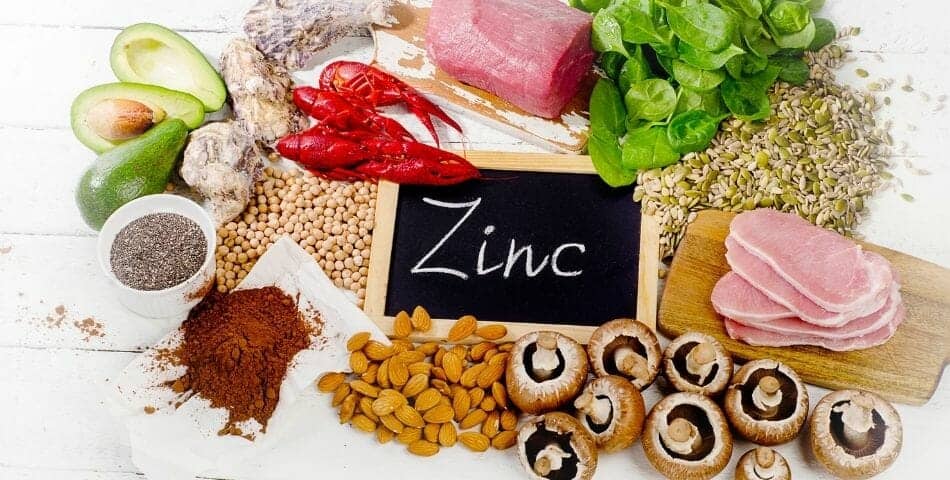
In addition to its role as an infection fighter, zinc has several other key functions in your body:
- Serves as a cofactor for hydrochloric acid (HCl), which is a part of stomach acid
- Improves prostate health in men- high levels of zinc are found here
- Synthesizes cholesterol, fats and protein
- Supports cell growth and replication of DNA
- Helps maintain your skin and bone integrity
- Supports optimal function of your immune system
- Serves as an essential cofactor for essential fatty acid metabolism and synthesis
- Allows your sense of taste to work correctly
What causes zinc mineral deficiencies?
- Stress!
- Refined carbohydrates
- Vegetarian or low-protein diet
- GI tract problems
- Coffee and other caffeinated beverages
- Alcohol
- High copper – Zinc competes with copper for absorption.
Zinc is so important to the overall health of your immune system, so it’s no surprise that a deficiency in zinc can lead to prolonged illnesses (think winter colds and the flu).
Zinc deficiency can show up as:
- Slow healing of wounds, open sores
- Getting sick frequently
- Little appetite
- Not feeling alert
- Loss of sense of taste and smell
- Diarrhea

Zinc is found in significant amounts in oysters – they have 3x the amount of zinc as the next highest food source, beef. In addition to oysters and beef, good sources of zinc are:
- Poultry
- Sesame and pumpkin seeds
- Cashews and almonds
- Wheat germ
- Beans, lentils and chickpeas
When meal planning, think about creating meals that feature both zinc and vitamin A. A deficiency in one usually means a deficiency in the other. Zinc and vitamin A work together to create mineral balance – vitamin A helps with zinc absorption and zinc helps vitamin A move around your body.
On the flip side, make sure your multivitamin doesn’t contain both zinc and copper. They compete with each other. If you need a zinc supplement, take it several hours before or after your multivitamin if it contains copper.
Mineral deficiencies: Iron
Iron was once considered the metal of the heavens. Most of the iron in your body is found in your red blood cells as hemoglobin, which carries oxygen from your lungs to cells throughout your body. Hemoglobin also transports carbon dioxide from your cells back to your lungs, where it’s exhaled.
Some functions of iron mineral deficiencies in your body:
- Essential in creating hemoglobin
- For strength and look of good health
- Needed by enzymes for protein metabolism and enzyme production
- Formation of tissue collagen and elastin
- Helpful in the production of carnitine, an amino acid key for helping your body use fatty acids
Low iron levels are something that all menstruating women should be on the lookout for. Anemia is the most common blood disorder in the U.S., with 3 million Americans suffering with it, and one of the most common mineral deficiencies in women. Your red blood cells need hemoglobin to work correctly. And iron is needed to make this happen.
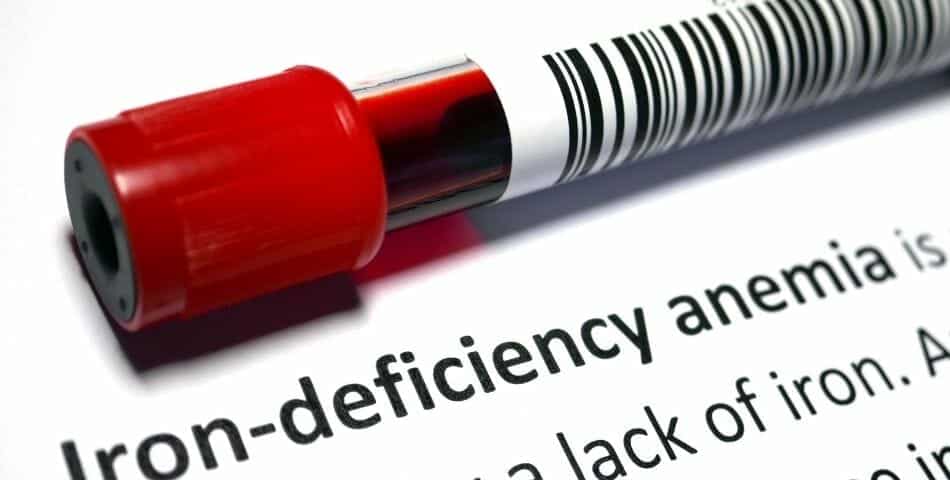
How do you know if you might have iron deficiency anemia?
Symptoms include:
- Extreme tiredness
- Feeling weak
- Feeling short of breath or having a racing heart
- Dizziness or feeling lightheaded
- Weak and brittle nails
- Cold hands and feet
And there’s one unusual symptom that points straight to an iron deficiency – wanting to eat non-nutritive things like dirt, sand, clay, chalk and ice.
What causes iron mineral deficiencies?
- Poor GI health. Conditions such as irritable bowel and h. Pylori infection keep iron from being absorbed.
- Heavy menstrual cycles
- High tannin foods like coffee and tea
- High amounts of aspirin (hurts your GI tract’s ability to absorb iron)
Anemia is a particular issue for female endurance athletes, especially runners. Iron is lost through sweating and through an increase in the breakdown of red blood cells. This happens because of strong muscle contractions and pounding the pavement (literally).
Growing kids are also susceptible to anemia due to their growth spurts.
All this said, not everyone needs extra iron. This is because your body very efficiently recycles and uses the iron it has to create mineral balance.
Even if supplementation might be needed (always confirm with blood work!), iron is one of the easiest mineral deficiencies to get control of by eating nutrient-dense, whole food sources. It comes in two forms – heme (animal-based) and non-heme (plant-based). Your body is less efficient at absorbing non-heme, but it still makes up most of your diet. Great sources of iron include:
- Beef, pork and poultry
- Seafood – mussels, oysters, sardines
- Pulses – lentils, chickpeas, lima beans and kidney beans
- Spinach and broccoli
- Dried fruit, especially apricots
- Seeds – pumpkin and sesame
To maximize your iron uptake, make sure you’re eating vitamin C rich foods as part of your iron-rich meal. Avoid calcium-rich foods though, because they will prevent iron absorption.
Blood testing is a must if you suspect low iron levels. Be sure to work with a functional health professional on supplementation because too much iron can damage your organs.
Conclusion:
Minerals are vital for your health. Your body cannot make them.
But because of soil depletion and increased CO2 levels, a whole foods diet alone can still leave you with mineral deficiencies. Supplementation has to be a part of your daily routine.
This doesn’t take away from eating a seasonal, nutrient dense whole foods diet though. You will always hear me speak about this before any supplementation. A diverse, nutrient-rich whole foods diet combined with a daily multi mineral supplement that includes vitamins D and K is the place to start.
We always recommend that you work with a functional medicine practitioner to determine the specific supplement plan for your bio individual needs. Getting rid of mineral deficiencies is such a straightforward way to improve your health!
If you’d like some support on your health journey, schedule a free health analysis call with our team today and we will get you started.
References:
- Hall G and Phillips TJ. “Estrogen and skin: The effects of estrogen, menopause, and hormone replacement therapy on the skin.” J Am Acad Dermatol 2005;53:555-68.
- American Thyroid Association – https://www.thyroid.org
- Dahl, L., Opsahl, J. A., Meltzer, H. M., & Julshamn, K. (2003). Iodine concentration in Norwegian milk and dairy products. The British journal of nutrition, 90(3), 679–685. https://doi.org/10.1079/bjn2003921




